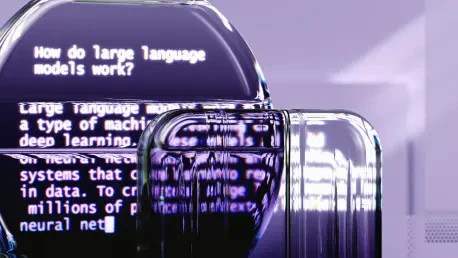Imagine a workplace where routine tasks like scheduling interviews or processing payroll are handled instantly by intelligent systems, freeing up human resources professionals to focus on building meaningful connections and driving strategic goals. This is no longer a distant vision but a reality in 2025, as artificial intelligence (AI) reshapes HR into a powerhouse of efficiency and innovation. Across industries, from retail giants to tech startups, AI is redefining how organizations manage their most valuable asset—their people. This review dives deep into the technology behind AI-driven HR transformation, exploring its key features, performance metrics, and real-world impact, while assessing its potential to revolutionize workforce management.
Core Features of AI in HR
AI’s integration into HR hinges on several standout capabilities that streamline operations and enhance employee experiences. At the forefront is automation, which tackles repetitive tasks with precision. Functions such as payroll processing, leave management, and candidate screening are now executed through AI algorithms, slashing processing times and minimizing errors. This technology leverages machine learning to adapt and improve over time, ensuring that administrative burdens are significantly reduced for HR teams.
Another pivotal feature is data analytics, which empowers organizations to make informed decisions. AI systems analyze vast datasets from employee performance reviews, engagement surveys, and turnover rates to uncover actionable insights. These tools help identify trends, such as potential retention risks, allowing HR to act proactively rather than reactively. The predictive modeling aspect further enhances this by forecasting future workforce needs based on historical patterns.
Personalization stands as a third critical component, tailoring employee interactions through AI-driven tools like chatbots and virtual assistants. These systems provide on-demand support for onboarding, benefits inquiries, and career development guidance. By customizing responses to individual needs, AI fosters a sense of value among employees, directly impacting satisfaction and productivity levels in measurable ways.
Performance and Real-World Impact
The performance of AI in HR is evident in its tangible outcomes across diverse sectors. In large-scale retail operations, for instance, AI tools have streamlined hiring processes for millions of employees by automating resume screening and interview scheduling. Usage statistics reveal high adoption rates, with internal platforms handling millions of employee queries annually, demonstrating both the reliability and scalability of these systems.
Beyond operational efficiency, AI’s impact on employee well-being is noteworthy. Tailored benefits platforms powered by AI analyze individual preferences and needs to recommend personalized health or financial support options. Such initiatives have resulted in increased engagement scores, as employees feel more supported in their personal and professional lives. The technology’s ability to facilitate real-time feedback also ensures that HR can address concerns swiftly, strengthening trust within the organization.
A striking example of AI’s transformative power is its role in immersive learning experiences. Some organizations have deployed AI to create virtual training environments, enabling employees to upskill in dynamic, interactive settings. These programs, often supported by roadshows and bootcamps, have successfully encouraged tech adoption among workforces, breaking down barriers of apprehension and fostering a culture of continuous growth.
Challenges in Implementation
Despite its impressive performance, integrating AI into HR is not without hurdles. Data privacy remains a significant concern, as these systems handle sensitive employee information. Ensuring compliance with global regulations while maintaining robust security protocols is a complex task that demands constant vigilance. Organizations must invest in encryption and anonymization techniques to safeguard data integrity.
Technical integration poses another challenge, as legacy HR systems often struggle to sync with modern AI platforms. This mismatch can lead to inefficiencies or data silos, undermining the technology’s potential. Addressing this requires substantial investment in infrastructure upgrades and staff training to ensure seamless interoperability across all HR functions.
Workforce apprehensions about job displacement also loom large. Many employees fear that AI could render their roles obsolete, creating resistance to adoption. Mitigating this involves transparent communication and education initiatives that highlight AI as an enabler, not a replacement. Ongoing efforts to upskill staff for an AI-augmented future are critical to building confidence and trust in these tools.
Future Trajectory and Innovations
Looking ahead, AI in HR is poised for even deeper integration, with the potential to influence every facet of workforce management within the next few years. Emerging advancements in natural language processing are set to refine how AI interprets and responds to complex employee queries, making interactions more intuitive. Machine learning algorithms will further enhance talent analytics, offering precise skills mapping for personalized career paths.
A notable trend is the industry’s shift toward transparency to address fears of automation. Organizations are increasingly prioritizing employee education, demystifying AI through workshops and interactive sessions. This focus on human-centric adoption is expected to accelerate acceptance and maximize the technology’s benefits across diverse workforces.
Long-term, AI could redefine organizational culture by embedding predictive workforce planning into everyday HR strategy. This would enable companies to anticipate staffing needs with unprecedented accuracy, aligning talent development with business objectives. Such capabilities promise to elevate HR from a support function to a central driver of sustainable success.
Closing Thoughts
Reflecting on this exploration, AI proves to be a game-changer in HR, automating mundane tasks, personalizing employee experiences, and unlocking strategic insights that reshape workforce dynamics. Its performance in real-world settings underscores both efficiency gains and cultural impacts, even as challenges like privacy and integration demand careful navigation. For organizations looking to harness this technology, the next steps involve prioritizing robust data security measures and investing in employee education to ease adoption. Exploring partnerships with tech providers to customize AI solutions could further enhance outcomes, ensuring that HR not only keeps pace with innovation but also leads the charge in building resilient, engaged teams for the future.









